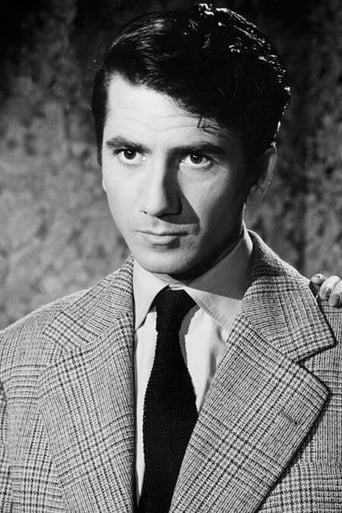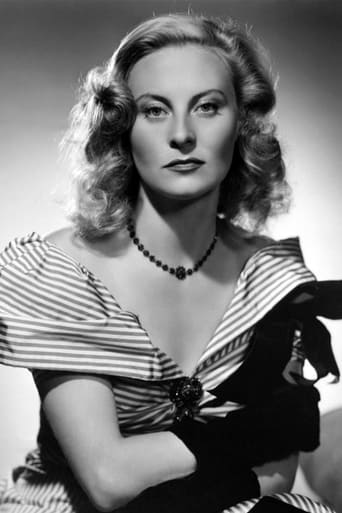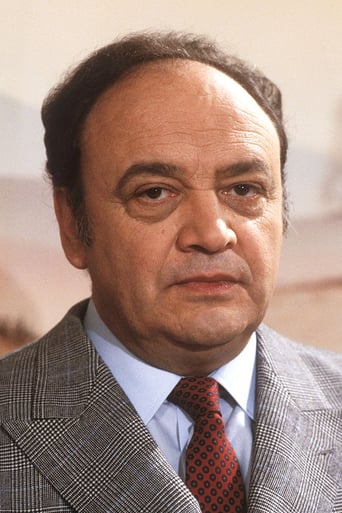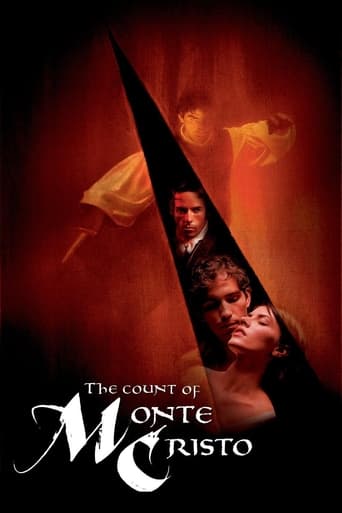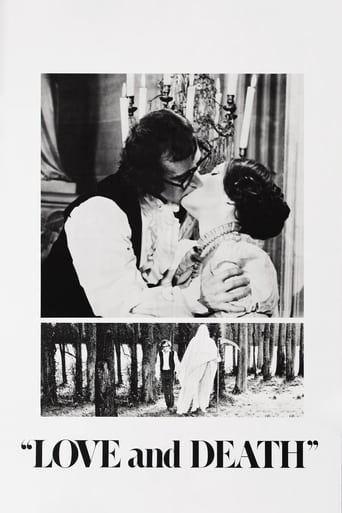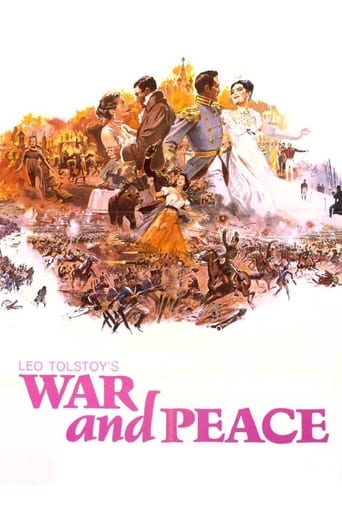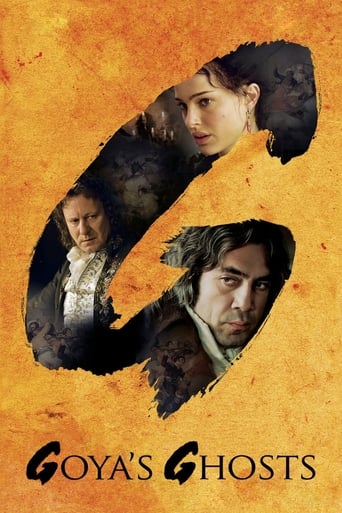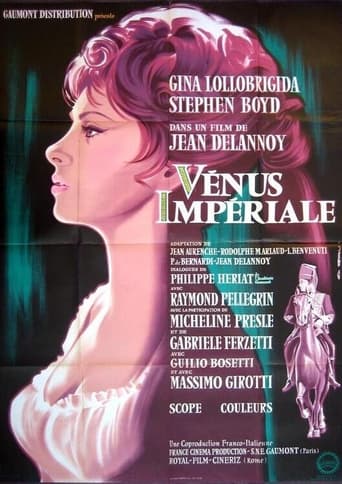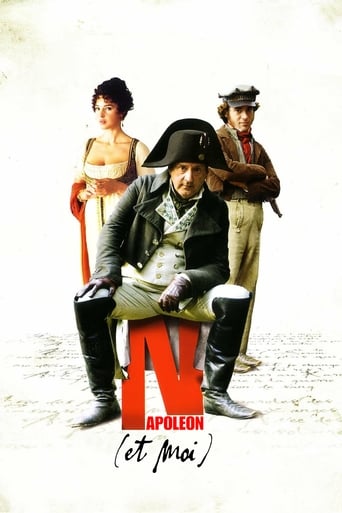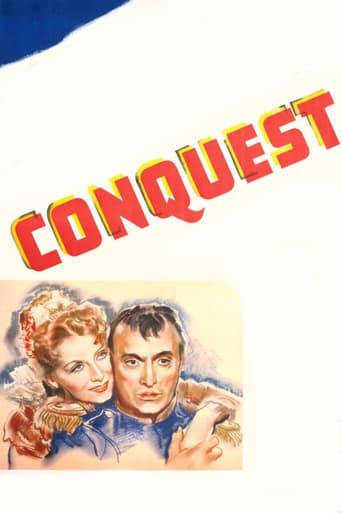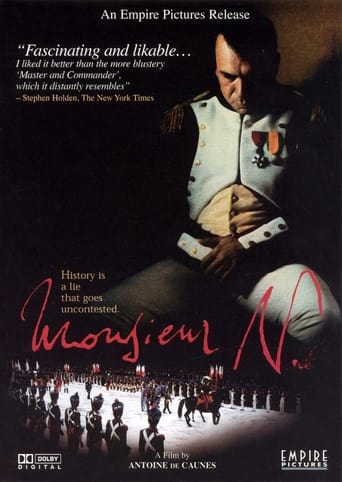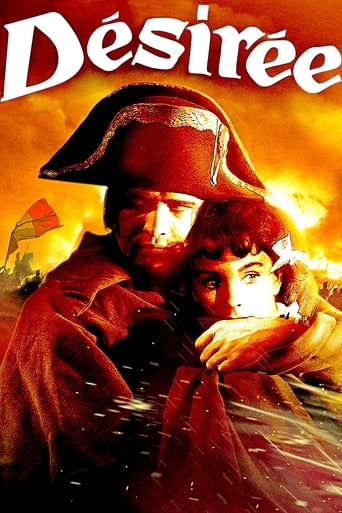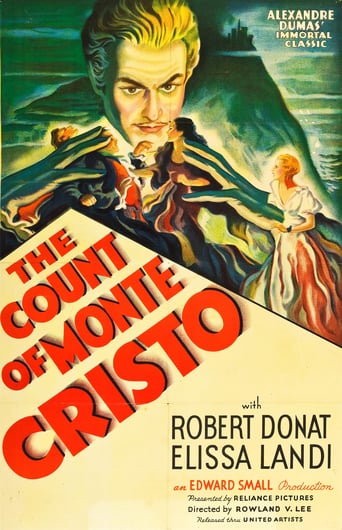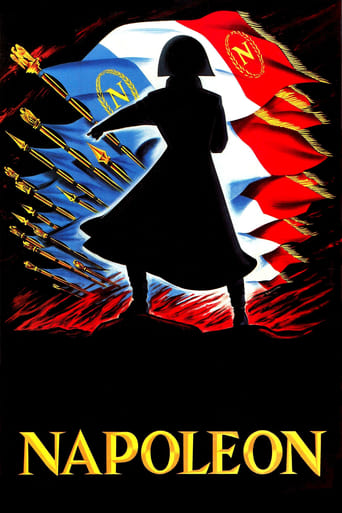
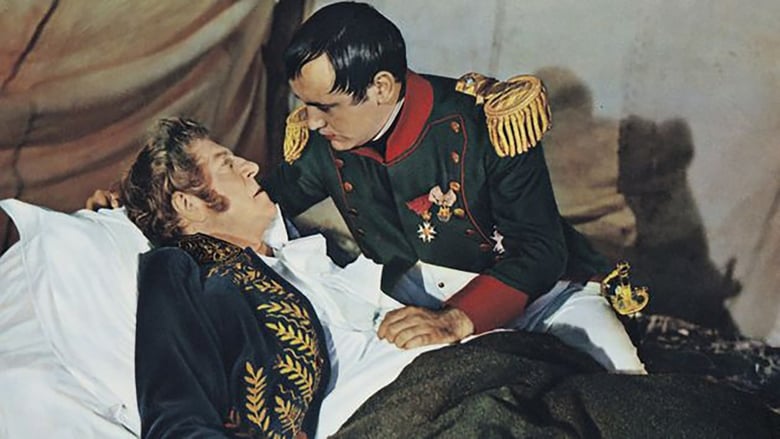
Napoleon (1955)
The film follows the life of Napoleon from his early life in Corsica to his death at Saint Helena. The film is notable for its use of location shooting for numerous scenes, especially at the French estates of Malmaison and Fontainebleau, the Palace of Versailles, and sites of Napoleonic battles including Austerlitz and Waterloo.
Watch Trailer
Cast


Similar titles
Reviews
Purely Joyful Movie!
Pretty good movie overall. First half was nothing special but it got better as it went along.
The performances transcend the film's tropes, grounding it in characters that feel more complete than this subgenre often produces.
It's funny, it's tense, it features two great performances from two actors and the director expertly creates a web of odd tension where you actually don't know what is happening for the majority of the run time.
The poorly dubbed English version is appropriately available on a poor, slightly-out-of-focus and somewhat-drained-of-color Hollywood Classics DVD. Produced on a lavish budget with a galaxy of famous players as long as your arm, this is an egocentric production in which most of the famous stars – buried under loads of make-up – are totally unrecognizable. Robbing them of their voices doesn't help either. Daniel Gélin plays the young Napoleon, but the role is soon taken over by Raymond Pellegrin – who looks nothing like Gélin but bears a remarkable similarity to Charles Boyer's Nappy in Clarence Brown's 1937 Conquest. The movie is directed by Sacha Guitry as an almost endless series of boring tableaux which may have been reasonably effective in the original French production, but look old-fashioned and stagey in the carelessly dubbed DVD (which gives no indication of its length but is most obviously NOT 3 hours and 10 minutes, and I seriously doubt that it is even 105 minutes).
i'm sorry but for such a big fan of hist(e)orical accuracy i think, and it is just a honest opinion that you should have made a spell check on your post. Then you would have acknowledged the fact that the word "emporor" written with a capital E does not restore the Emperor's honor not even when compared to Sacha Guitry's terrible attempt...But your little spelling error tells us more about the "type of cat" you are more then it tells us about Guitry's failure to satisfy your taste in historical re- enactments. I'ts not like you had to direct a whole movie...you just made a small comment on it...and look how it turned out...well good chance in finding something better then Abel Gance's silly re-enactment...as if artistic films should do just that...re-enact things as close as possible to your own petty little view...and i see that you are not only an expert in historical movies and how they should be done, but that you are also an expert in type casting, movie business and what not...it's good to see that people like you are still around, so the whole thing doesn't crumble to pieces... keep up the good work of being you, and long live the Emporor...right right?
"You can pretend to be serious; you can't pretend to be witty." Sacha GuitryGuitry would have been very amused by some the comments posted here. It never was his intent to do an historically accurate movie. Anyone slightly familiar with his filmography knows the subtle derision he infused in all his storytelling. I found that movie very entertaining but I know, as some of my fellow commentators should too, that for factual accuracy one must look elsewhere. I too recommend his rendition of the highs and lows of the French monarchy in " Si Versailles m'était conté ".
Except that this film is short, I was tempted to call it "NAPOLEON BLOWN-APART", but that suggests the film is actually long and has some degree of detail. THis monstrosity is under ninety minutes. There are short films about Napoleon, but they concentrate on one aspect of the man. CONQUEST deals with Napoleon and his Polish mistress. DESIREE with his relationship with Desiree Clary Bernadotte, the future Queen of Sweden. This was Sacha Guitry's attempt to do a complete account of Napoleon's thirty year career as a world figure, in a totally inadequate amount of time.The French version of the film actually has some continuity lacking in the English version. But most people in the U.S. have seen (if they have seen it at all) the English version. It is best known because of the cameo appearances, in particular of Orson Welles as General Hudson Lowe (who? - he's the British official who was appointed to be the jailer of Napoleon on St. Helena, but who managed to botch his assignment) and Eric Von Stroheim (very briefly) as Beethoven. Guitry, a talented boulevardier type, essayed the role of Talleyrand. None are shown to great advantage.It is set (apparently) in 1821, with Guitry in his Paris salon, talking to his intellectual friends, upon hearing the death of his former master. To be truthful, knowing Talleyrand, he would have said a word or two about Napoleon but then turned to more interesting current matters. The film does not go into the collapse of the relationship between the great Emperor and his gifted Foreign Secretary. Talleyrand was noted for his selfish ability to destroy a government that was no longer benefiting him, and then reappear in a more powerful position in the next regime. He helped destroy about seven of them, including Napoleon's. Historians have despised his selfishness, but they have usually praised him for knowing when to ditch the Emperor (Talleyrand was wary of the constant warfare, which the Emperor did not seem to know when to stop - he seemed to be using war to cover previous failures of policy, and to build up his remarkable reputation). The final blow was when Napoleon discovered that Talleyrand had been contacting Metternich and other foreign adversaries about undercutting Napoleon's diplomatic forays. In front of the whole court Napoleon cursed out Talleyrand, calling him a silk stocking full of "merde". He then left the court with his chief courtiers. Talleyrand watched thoughtfully, and said, "How sad that such a great man is so vulgar!" He redoubled his activities, assisted by his rival and foe (usually, but not here) Joseph Fouche, the head of the secret police. In 1814-15 they beat Napoleon at last.None of this is in the movie (at least the English version) that we see. Talleyrand is very philosophical, telling the story of the rise, fall, and rise of Napoleon and his legend. But in cramming the events from 1785 to 1821 we get a too rapid outline. The film though does even more than this. Talleyrand tells of how Napoleon's remains are returned to France for burial in Les Invalides (his magnificent tomb in Paris). But this happened in 1840, ordered by King Louis Philippe for popularity reasons. Only problem is that Talleyrand was dead by 1838.Since Welles is in the film for about two minutes, I might as well discuss this. In 1955 he was filming CONFIDENTAL REPORT (a.k.a. MR. ARKADIN), and (like OTHELLO) he was partly paying for it himself. So Welles was willing to appear in many films (especially in France) in bit cameo roles. His part is that of Lowe, who was a mediocre military figure who got the job as a last choice (the first choice, the Duke of Wellington, felt he and Bonaparte could never share an island together). Lowe was introduced to Bonaparte in the latter's residence of Longwood, and Bonaparte was polite like a host. But Lowe just glowered at him (as Welles does here). Bonaparte, quickly judging the idiot that he was stuck with, put his own hat on to show his contempt. It never improved, but we only see this scene.After Bonaparte died, his aides wanted a suitable tomb for him, but every time they presented a statement for the tombstone (General of the Armies, Emperor of France), Lowe turned down the recommendation. In disgust, they suggested a blank tombstone. Stupidly, Lowe agreed (as a surprised Welles does). Lowe never realized how truly eloquent the empty tombstone was - loyal Bonapartists from around the globe would know at that tombstone that no words could describe the giant who was under it adequately. Napoleon really did not need Les Invalides, but the French wanted to do it properly.The film is a total waste as a decent historical chronicle. Catch the 1927 Abel Gance classic, or CONQUEST or even DESIREE (even though it is a wretched film in it's own right - at least it gives the viewer some idea of how Sweden's modern royal family came into power). Catch the Armand Assante two part television movie about Napoleon and Josephine. But, unless you want to see all of Orson Welles or Eric Von Stroheim's performances, ignore this one. For Orson and Eric I give this a three.


